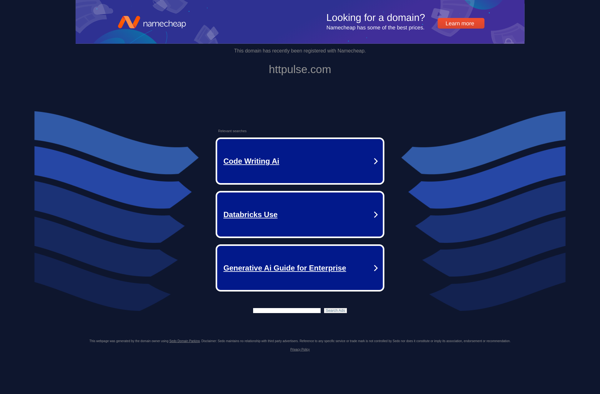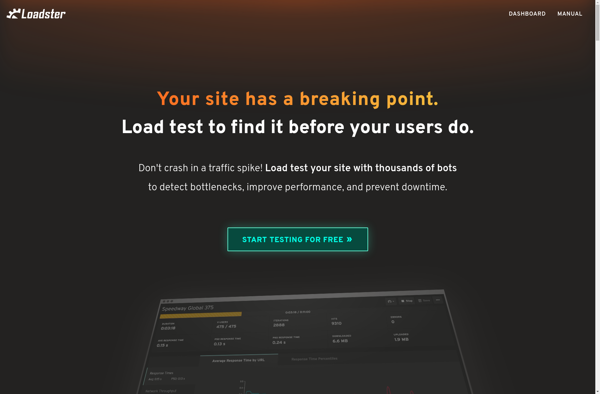Description: HTTPulse is an open-source web debugging proxy and HTTP monitor that allows developers to inspect traffic between web apps and servers. It can capture, inspect, modify, replay, save, and mock HTTP requests and responses.
Type: Open Source Test Automation Framework
Founded: 2011
Primary Use: Mobile app testing automation
Supported Platforms: iOS, Android, Windows
Description: Loadster is a load and performance testing tool for web applications. It allows you to simulate traffic to your website or application to test how it performs under different user loads. Useful for optimizing and ensuring your app can handle expected traffic.
Type: Cloud-based Test Automation Platform
Founded: 2015
Primary Use: Web, mobile, and API testing
Supported Platforms: Web, iOS, Android, API

